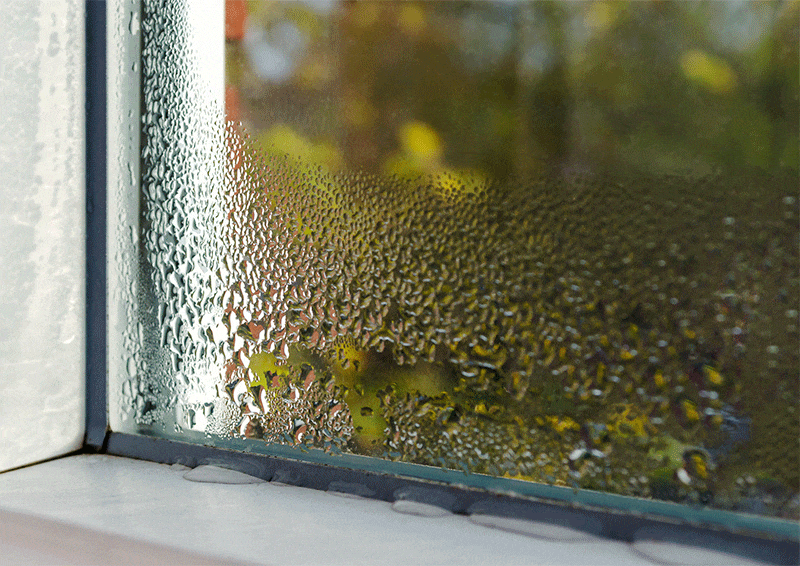The Right Office Humidity for Your Building
Office humidity is very important for every building. If it’s too high or too low, it can affect your health, the building materials, the equipment, and more. According to the American Industrial Hygiene Association (AIHA), uncontrolled humidity levels are one of the main factors for poor indoor air quality (IAQ). So, what is the right humidity level?
The Ideal Humidity Level
 For most buildings, the ideal humidity level should be around 40-45%. If it’s below 30%, it’s typically considered too low. And, if it’s above 50%, it’s considered too high. To check the level in your building, go around to each zone or room. Is there condensation on the windows? Mold? Do people feel congested or like they can’t breathe very well? These are all symptoms of uncontrolled humidity levels. You can also test the humidity levels to get an exact reading on the percentage. From there, make sure your HVAC is working properly, and call the Severn Group to come in and help.
For most buildings, the ideal humidity level should be around 40-45%. If it’s below 30%, it’s typically considered too low. And, if it’s above 50%, it’s considered too high. To check the level in your building, go around to each zone or room. Is there condensation on the windows? Mold? Do people feel congested or like they can’t breathe very well? These are all symptoms of uncontrolled humidity levels. You can also test the humidity levels to get an exact reading on the percentage. From there, make sure your HVAC is working properly, and call the Severn Group to come in and help.
The Effects of Humidity on Buildings
When your office humidity level is too high, it allows dust mites and microbes to grow. The air becomes moist, and mold can start to appear. Unfortunately, people (especially those who have asthma) may develop health issues. High humidity can also make a person feel tired, sluggish, and unable to concentrate. For these reasons, it’s especially critical for office buildings to prevent high humidity levels.
Also, excess humidity can cause wood to warp. So, for buildings that sell or manufacture wood products, or ones that have wood floors and furniture, high humidity can be a major problem. The same is true for printing companies and paper manufacturers. Additionally, high humidity can be dangerous for pharmaceutical companies, museums, and historical buildings.
On the other hand, low humidity can also be troublesome. Dry air makes it difficult for some people to breathe, and it can irritate the skin, eyes, and sinuses. Although, low humidity is more common in the winter months because cold air is drier.
Understanding Your Building’s Humidity Levels
Some buildings are more susceptible to office humidity issues than others. If your building lacks proper ventilation or a working HVAC system, it’s likely to have an impact on the IAQ. Specifically, combustion appliances and equipment can increase humidity. Therefore, if your building has any machinery with that kind of output, be careful the humidity doesn’t get too high.
Moreover, the location and season also come into play. As you can imagine, extreme outdoor air temperatures can affect the inside of your building. And, if your building is located in a coastal area or near a large body of water, you might be dealing with higher levels of humidity.
How to Lower Humidity
To prevent high humidity levels, it’s essential to maintain your air conditioning systems. Your air conditioner not only cools your office space, but it also helps lower humidity. Specifically, the AC system lowers humidity by removing moisture from your indoor air. So, make sure your air conditioner receives regular preventive maintenance from a professional. With routine maintenance, your system is more likely to sustain its function and efficiency.
Contact the Severn Group to discuss your building’s humidity levels. We’ll address any concerns you might have and provide you with an HVAC system that is well-suited for your building. Fill out our online form today to schedule service or to learn more.
